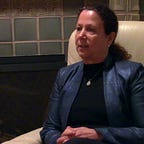Disabled, Not Disposable
I am over the age of 60, blind and diabetic. So if I contract the Coronavirus, do I stand a chance at getting treatment, or is my life over?
This is the question that is on the minds of millions of people with disabilities as the virus spreads in the United States and around the world. Increasingly, news articles focus on the life and death decisions facing health care workers on a moment to moment basis. The concept of ‘rationed’ health care is debated as the few treatment options for people infected by the Coronavirus are strained beyond capacity.
We know that teams of experts, ethical and faith leaders, scientists, health care providers have addressed this question, at least on a theoretical level. This is an age old dilemma, front-line first responders have used a system of triage that prioritizes delivery of life-saving treatment in emergencies since the time of Napoleon. We tacitly accept that a medical expert will make decisions about who gets treated first every time we rush into an emergency room. Suddenly, however, those guidelines are creating confusion as much as they are providing direction in the face of this overwhelming world-wide crisis. The ‘utilitarian’ guidelines, suggesting that scarce treatment resources be allocated to those most likely to survive or recover, the common underpinning of the system of medical triage may have the impact of reducing care options for people who are hardest hit by the Coronavirus. Can we really judge whether it is best to treat a younger person over an older one? How do we place worth on these lives when so many are in need of compassionate and inclusive medical care, and not everyone can be tended to?
I have no answers to those questions other than to offer the lesson of my own life. To be perfectly clear, disability should not be a criteria for exclusion from medical treatment in this, or any other crisis.
Alabama and Washington are among the states that have issued guidelines directing treatment for Coronavirus exclude residents with disabilities, zeroing in on persons with intellectual disabilities in particular. The United States Office of Civil Rights immediately published notice that such action is discriminatory and illegal. The states leading the nation in addressing the crisis, most notably, California, quickly affirmed that rationed health care that favors one community over another violates the rights of Americans and will not be tolerated. But how much damage has already been done? How do we now ensure that first responders are applying inclusive moral standards regardless of a person’s disability in determining who to admit to hospitals or treatment?
Just as it is abhorrent to consider that age, race, gender or economic status should drive a decision to provide medical care, a decision to exclude the 61 million Americans challenged by disability is nothing short of barbaric. No one person with a disability is the same and lumping all ‘pre-existing conditions’ and disabilities together is ignorant and unhelpful. Making a value judgment about a person’s life based on a disability erases the long fought battle of the disability community to demonstrate our power and potential in the world. For decades, the disability community has fought against the ‘medical model’ of analysis, which relegated people with disabilities to the status of weakness, useless or infirm. Thirty years after the passage of the Americans with Disabilities Act, we still struggle to be included in every aspect of society.
In my opinion, that struggle has been worth it. The national disability community produces thought leaders, public servants, professionals in every category, cherished parents and beloved children. In other words, we are as productive, as creative and as worthy as anyone else. We work alongside every citizen to contribute value as professionals, parents, children and neighbors. I cannot even imagine the criteria by which a health care professional would decide to save or sacrifice my life if I developed critical illness as a result of this virus. It may well be that the severity of my condition coupled with my age should disqualify me as opposed to one with a greater chance of survivability. But I do know that it should not be based on the fact that I am disabled. Bottom line for me here is that any decision in these confounding moments must be balanced, compassionate and reasoned. Denying treatment to people simply because they have a disability must therefore, be taken off the table, right now.
